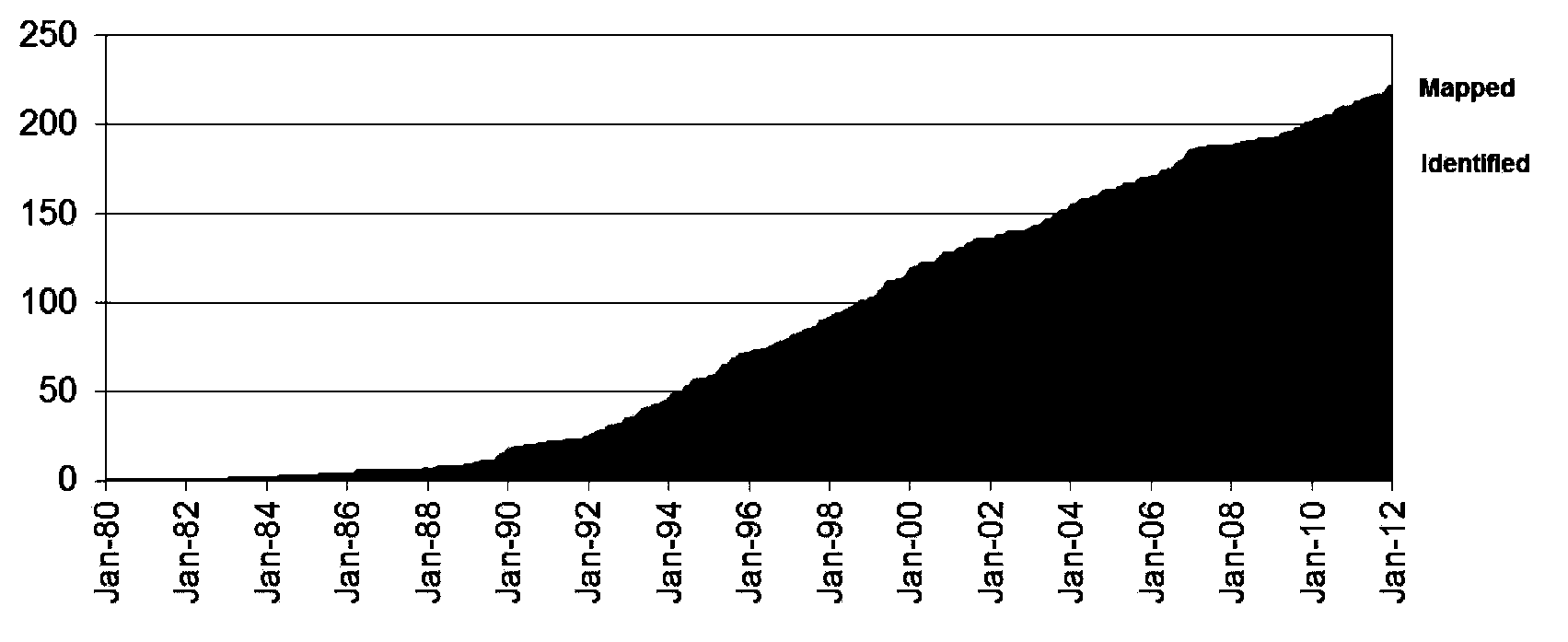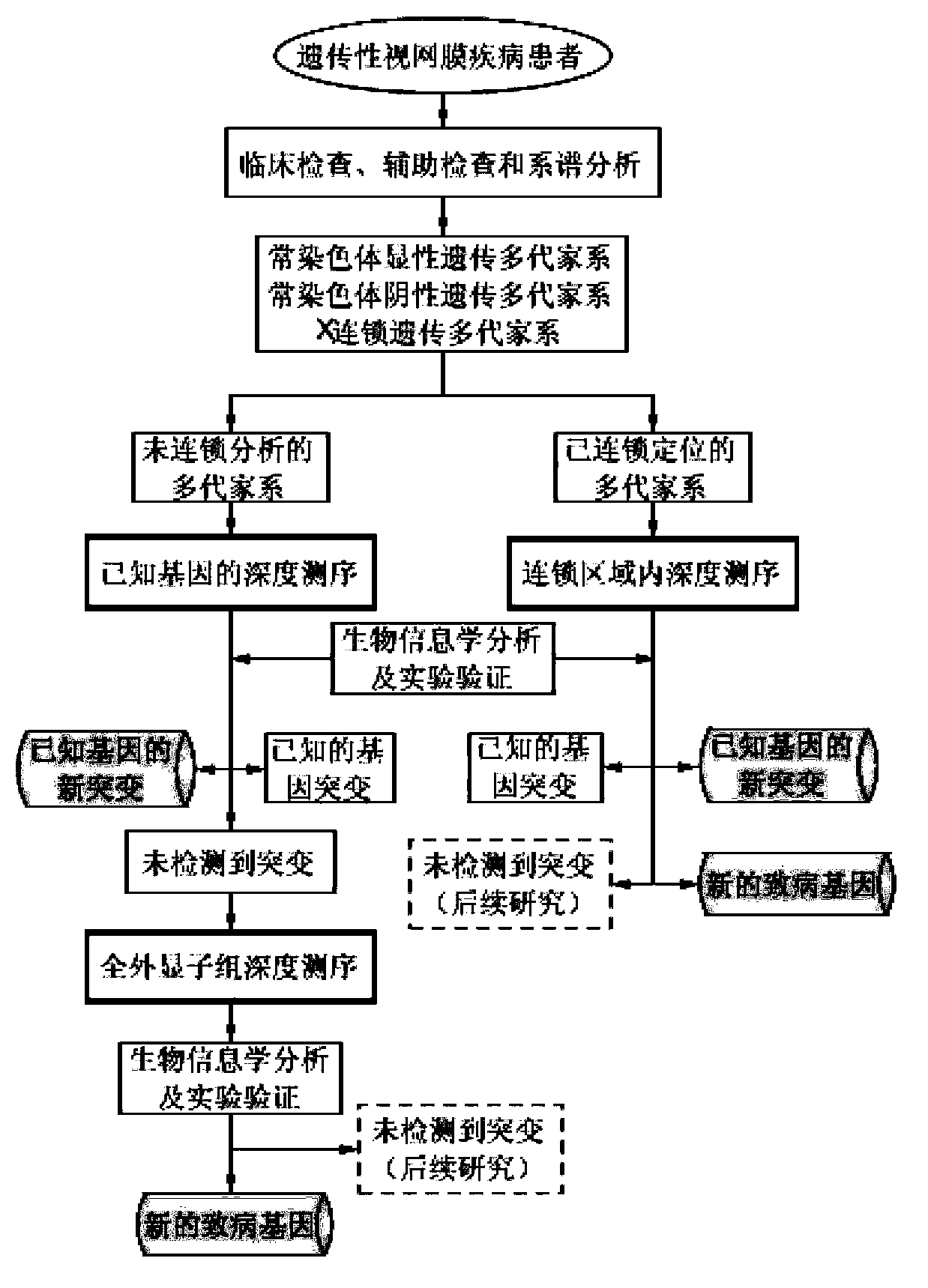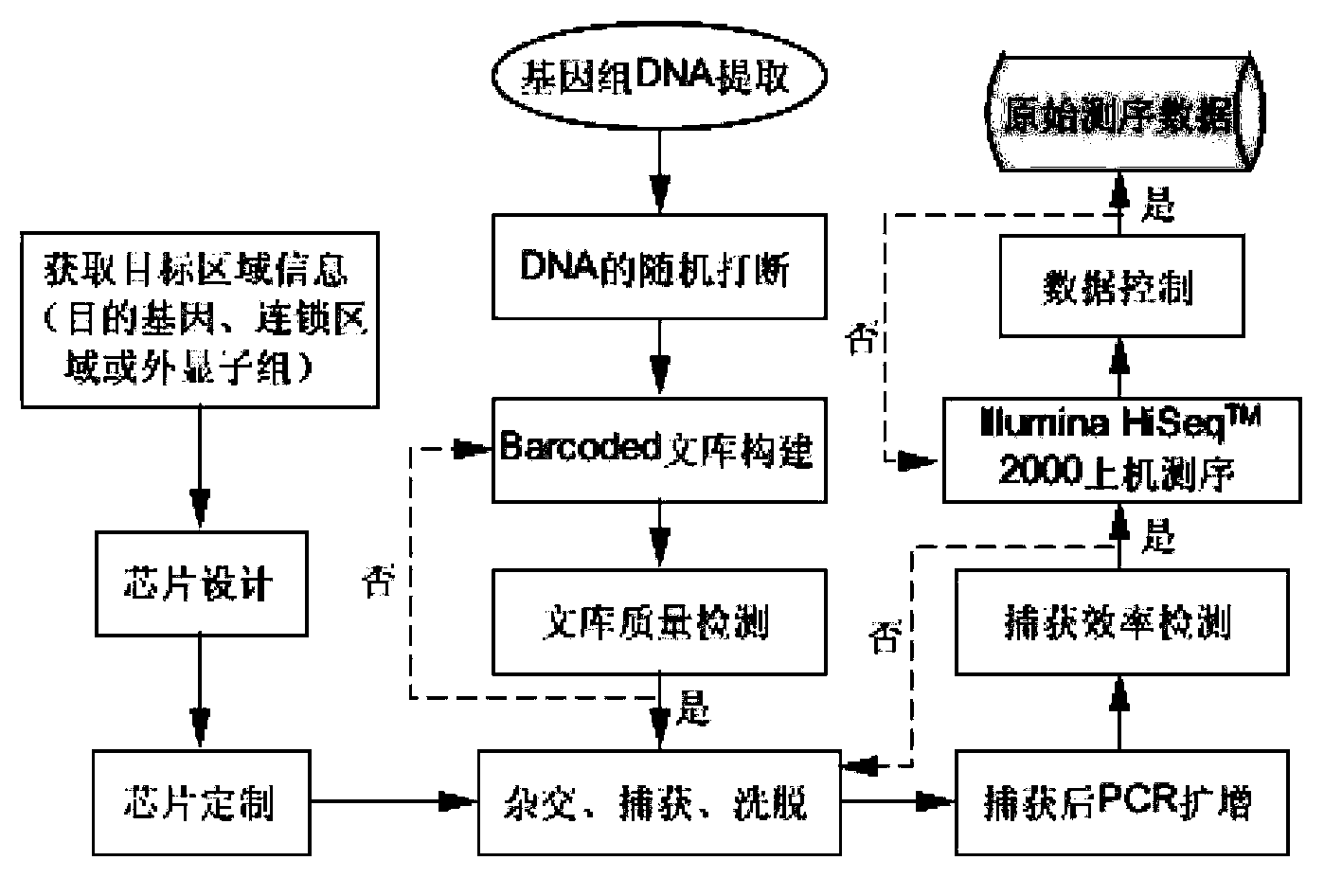Method for screening HRDs disease-causing mutation and gene chip hybridization probe designing method involved in same
A gene chip hybridization and hybridization probe technology, applied in the field of biomedicine, can solve the problems of screening out disease-causing genes, not being able to locate disease-causing sites, and being difficult to analyze small families and sporadic cases, etc., to achieve high screening efficiency, screening Check the effect of a wide range of
- Summary
- Abstract
- Description
- Claims
- Application Information
AI Technical Summary
Problems solved by technology
Method used
Image
Examples
Embodiment 1
[0048] experimental method:
[0049] 1. Establishment of HRDs genetic resource bank.
[0050] 1.1 Collect the clinical data and blood samples of the following three types of patients:
[0051] 1.1.13 or more generations of autosomal dominant, autosomal recessive, and X-linked recessive families, including RP, Leber congenital amaurosis, congenital static night blindness, and yolk-like macular dystrophy , Stargardt disease.
[0052] 1.1.2 Collect small hereditary families of various HRDs.
[0053] 1.1.3 Collect sporadic cases of various HRDs without family history.
[0054] 1.2 Genomic DNA extraction:
[0055] Using TIANamp Blood DNA Extraction Kit (Tiangen Biotech Co. Ltd, Beijing, China), the patient's genomic DNA was extracted from the collected patient's peripheral blood according to the protocol provided by the manufacturer.
[0056] 2. Mining new pathogenic genes / new mutations of known pathogenic genes in HRDs (see figure 2 ).
[0057] 2.1 Design and customize HRDs...
Embodiment 2
[0096] Functional research was carried out on the pathogenic gene detected in Example 1. Here, the new mutation p.P315L of the above-mentioned PRPF4 gene was taken as an example.
[0097] experimental method:
[0098] 1. Conservative analysis:
[0099] Using NCBI HomoloGene database ( http: / / www.ncbi.nlm.nih.gov / homologene ) Conservative prediction of the screened mutations in multiple species.
[0100] 2. Predict the pathogenicity of mutations based on SIFT and PolyPhen values:
[0101] Using two mainstream online prediction software: PolyPhen-2 (Polymorphism Phenotyping, version2;
[0102] http: / / genetics.bwh.harvard.edu / pph2 / ) and SIFT Human Protein DB ( http: / / sift.bii.a-star.edu.sg / ), to predict the impact of missense mutations and nonsense mutations on protein levels, thereby predicting the pathogenicity of mutations.
[0103] 3. Research on protein crystal structure changes:
[0104] Since the PRPF4 gene is involved in the formation of the U4 / U6 complex, and...
PUM
 Login to View More
Login to View More Abstract
Description
Claims
Application Information
 Login to View More
Login to View More - R&D
- Intellectual Property
- Life Sciences
- Materials
- Tech Scout
- Unparalleled Data Quality
- Higher Quality Content
- 60% Fewer Hallucinations
Browse by: Latest US Patents, China's latest patents, Technical Efficacy Thesaurus, Application Domain, Technology Topic, Popular Technical Reports.
© 2025 PatSnap. All rights reserved.Legal|Privacy policy|Modern Slavery Act Transparency Statement|Sitemap|About US| Contact US: help@patsnap.com



